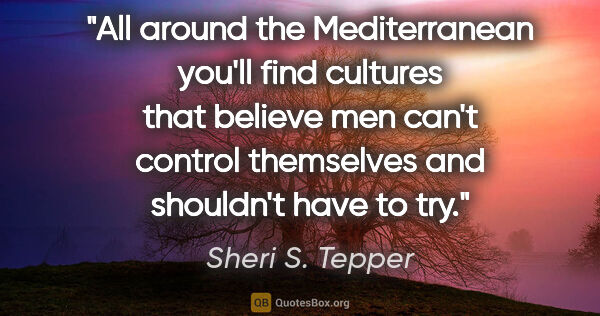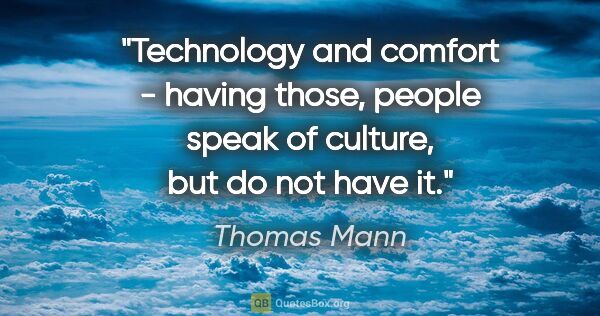Cultures Quotes (page 25)
The two ideas, justice and vocation, are inseparable.... It is by way of the principle and practice of vocation that sanctity and reverence enter into the human economy. It was thus possible for traditional cultures to conceive that "to work is to pray." (pg. 258, The Idea of a Local Economy)
Wendell Berry

Physical objects are conceptually imported into the situation as convenient intermediaries not by definition in terms of experience, but simply as irreducible posits comparable, epistemologically, to the gods of Homer . . . For my part I do, qua lay physicist, believe in physical objects and not in Homer's gods; and I consider it a scientific error to believe otherwise. But in point of epistemological footing, the physical objects and the gods differ only in degree and not in kind. Both sorts...
Willard Van Orman Quine
I believe that art is the highest expression of the human spirit. ~ I believe that we yearn to transcend the merely finite and ephemeral; to participate in something mysterious and communal called “culture” – and that this yearning is as strong in our species as the yearning to reproduce the species. ~ Through the local or regional, through our individual voices, we work to create art that will speak to others who know nothing of us. In our very obliqueness to one another, an unexpected...
Joyce Carol Oates
Text of bliss: the text that imposes a state of loss, the text that discomforts (perhaps to the point of a certain boredom), unsettles the reader's historical, cultural, psychological assumptions, the consistency of his tastes, values, memories, brings to a crisis his relation with language.
Roland Barthes

In the "free world" (Natopolis) the centres of ideological orthodoxy are rarely defined. The diversity of intellectual trends within the orthodoxy, the indeterminate and shifting character of its boundaries, the existence of real centres of dissent (and the licence given to even Stalinist opposition)--all these conspire to create the central illusion of "Natopolitan" culture, that there is in fact no orthodoxy but only an infinite variety of opinions among which one is free to choose.
E. P. Thompson


